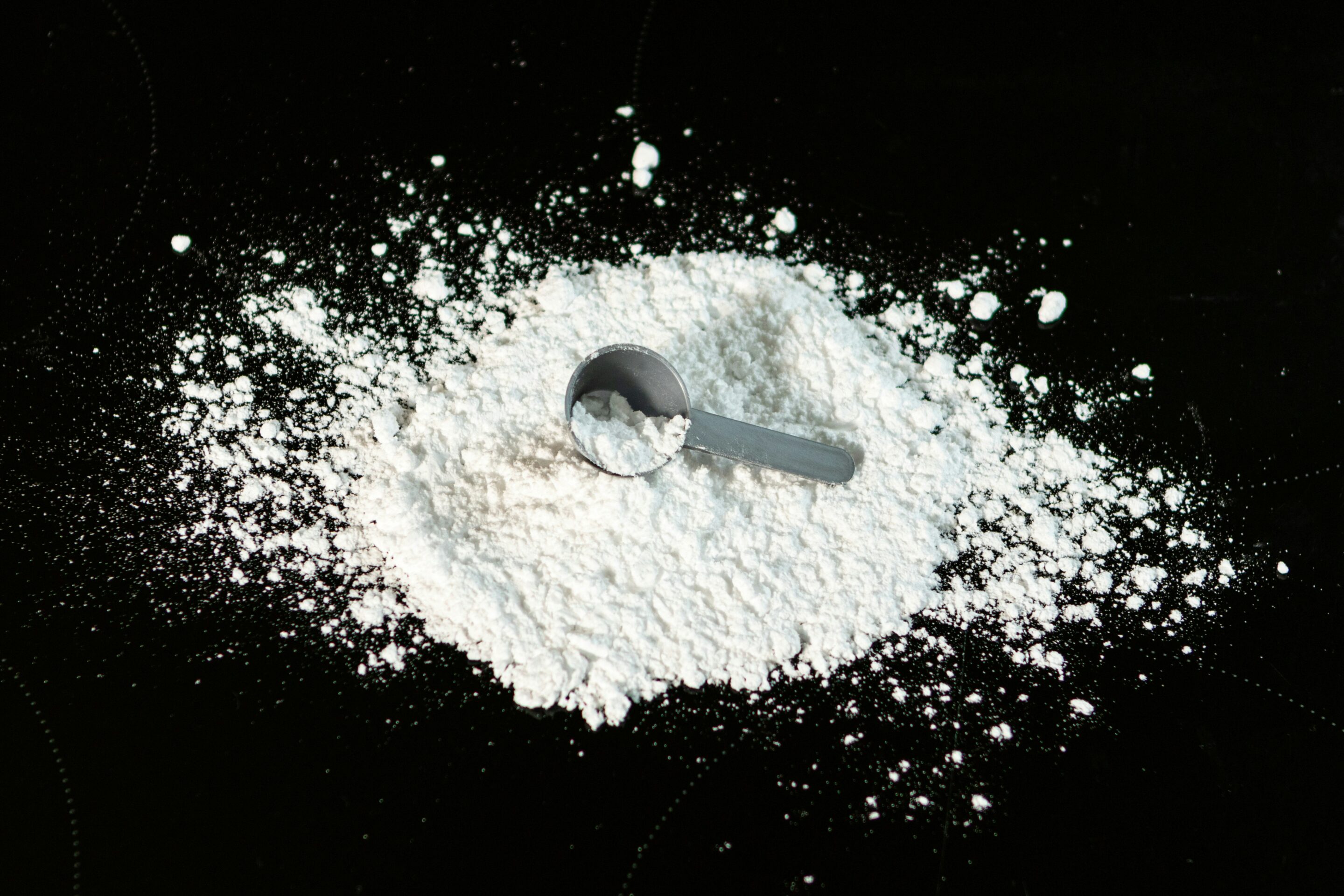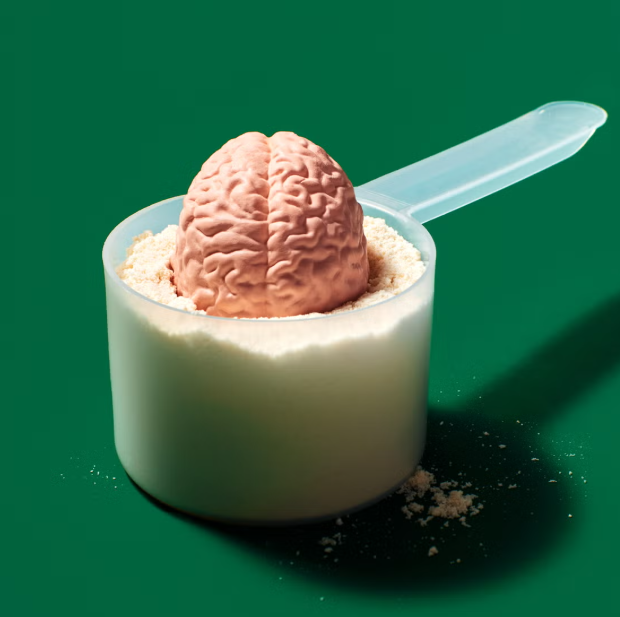BY NOW, you’ve probably heard the gospel of creatine. For years, the fitness industry has been almost unanimous in its scepticism of trendy wellness hacks and new supplements claiming they can do it all, readily dismissing them as scams. Suddenly, creatine is being proclaimed the powdered messiah by everyone from gym-bros and TikTok influencers to scientists and other reputable sources – including, frequently, us.
There’s evidence behind these claims. Creatine is the most studied supplement ever and is backed by decades of science. It’s been proven to boost performance and help with recovery and it can even improve cognitive function. We’re not here to dispute that there are many benefits to creatine, but here’s the thing: just because everyone is taking it doesn’t mean everyone should.
Creatine does have many benefits, but it also has some unwanted side effects and requires some extra effort to see results. Here, we’re being contrarians and breaking down why not everyone should be taking creatine just for the sake of it.
What are the benefits of creatine?
Let’s start with the good stuff. Creatine works. Not in a woo-woo way, but in a very clear, physiological way. Your body naturally produces creatine, as it’s what helps you recycle ATP, the cellular currency of energy. By having more of it in your system, your body can recycle more energy, allowing you to push harder in short bursts, recover faster, have more energy, and yes, help your muscles look bigger.
It’s also cheap – it’s in basically every fitness product nowadays – safe for most people and more effective than 95 per cent of the other powders cluttering your cupboard. Compared to the many snake oils of the supplement industry, creatine is a rarity in that it actually delivers on many of its promises.
What are the negatives of creatine?
Digestive issues
Some of the most common complaints about creatine are stomach cramps, bloating, nausea and diarrhoea, which are often linked to taking large doses at once. This happens because creatine has an osmotic effect, drawing water into the intestines, which can loosen stools and irritate the gut. However, taking creatine with food, splitting doses or using micronised powders can often reduce these side effects.
Water retention and weight gain
Creatine is notorious for causing rapid weight gain, typically 0.5–2kg in the first week, due to water being pulled into muscle cells. This intramuscular water retention makes muscles look fuller but can feel like bloating to some users.
While this initial increase is mostly water, longer-term use combined with resistance training can also contribute to genuine muscle growth. That said, not everyone is trying to gain muscle. If you’re trying to lose weight, creatine probably isn’t right for you.
Hair loss
The link between creatine and hair loss comes almost entirely from a 2009 study of rugby players in the Clinical Journal of Sports Medicine, which found elevated levels of dihydrotestosterone (DHT), a hormone linked to male pattern baldness, after supplementation. Subsequent studies have failed to replicate these findings, and recent randomised controlled trials have found no effect of creatine on testosterone, DHT, or hair density.
Headaches
Reports of headaches on creatine are anecdotal but not uncommon, with one review noting they accounted for around 14 per cent of side effects in those supplementing with creatine.
The proposed explanation is dehydration: because creatine pulls water into muscles, failing to increase fluid intake may leave other tissues, including the brain, relatively underhydrated.
So, should you be taking creatine?
The real problem isn’t creatine itself, it’s the way we treat it. Creatine is not a magic bullet that everyone should be taking, nor is it a shortcut to accomplishing all your fitness goals. Ultimately, if your workouts are half-hearted, your diet isn’t in check and your sleep is bad, creatine won’t magically turn your life around.
Unless you’re ready to put in the work in the gym and be consistent with your diet and sleep, don’t expect huge results from taking creatine – you’ll likely just feel more bloated, and a bit more energised. The best supplement will always be hard work and consistency. Tragically, you can’t buy a tub of that on Amazon.
If you’re healthy, training hard and looking for an extra edge, creatine might be worth the hype. It’s effective, affordable and actually backed by science. If you’re curious, try it. But if you’re already overwhelmed by the basics like eating real food, getting enough protein and sleeping well, skip it. Don’t let creatine become a distraction from the fundamentals.


















